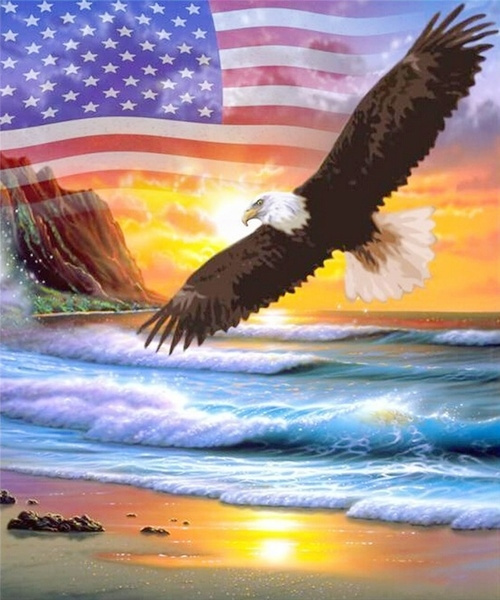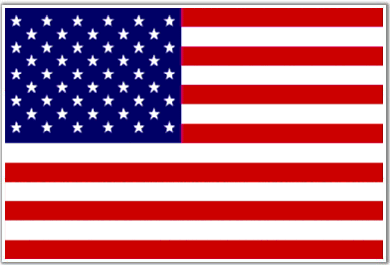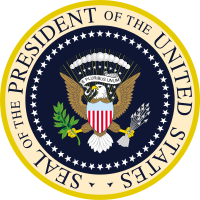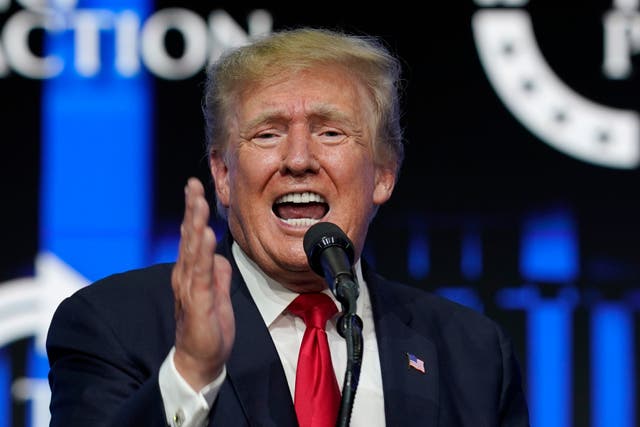 From Edge of the World to Leader of the World:
From Edge of the World to Leader of the World:
Trollheart's History of the United States of America

I heard some snide little jibes when I started doing the history of England, to the effect of “why aren’t you doing the history of the greatest country in the world, Trollheart?” To which I answer smugly, “I already am doing the history of Ireland.” Then I remember Ireland is kind of a s
hithole, and the smile goes from my face.
But seriously folks, this was always on the cards. If there’s one country that has an amazing - chequered and in some cases shameful - history (but then, what country does not?) it’s the United States of America. In terms of being an actual country, or at least a recognised one, it’s the youngest of the three we’re doing here, though of course as a landmass it’s existed as long as either of the other two. But in terms of being, shall we say, colonised, it was only discovered - by white men at least - a little over half a millennium ago, yet it has managed to, as it were, pack a whole lot of history into that five hundred-odd years. But if you’re expecting this history to kick off with a certain ship sailing from a certain rock, or even with the shout of “Captain Columbus! Land ho senor!” then you’re going to be disappointed, because, despite what we’ve tried to do to erase it, America as a landmass had a rich and glorious history before an Italian explorer stumbled across what he believed to be the West Indies, and like all my histories, this one will go back as far as it is possible to do.

I will freely admit, I have a lot of contempt for Americans. Well, for some. The prevalent idea that there is almost no world beyond the coast of North America, held by a large percentage of the population, annoys me, as does their insistence on rearranging the spelling of simple words with the laziness of a child who can’t be bothered to learn how to spell. I mean, how hard is it to spell doughnuts, or night, or tyre? But those are personal niggles with me, and if, as an Irishman, I can write a faithful and not-too-biased history of England, you can rely on me to be as impartial as I can with this one.
Well, mostly.

In some ways, many ways in fact, America as a country is quite a phenomenon. From pretty humble beginnings (historically anyway) as a rebel colony taking on the might of their powerful master to the world’s number one superpower in less than two hundred years is nothing short of remarkable, and the indelible mark it has left on the world - not always for the better, it has to be said - is irrefutable. Germany coming back from the ashes of defeat in two world wars and rising to all but control Europe’s finances, or Japan rebuilding after literally being bombed out of existence are both amazing feats, but the inexorable rise to power of the United States has all the hallmarks of a poor boy claiming his birthright as king at the end of a fantasy novel. Whether that boy is Aragorn or Sauron depends, I suppose, both on your politics and your morals, but nobody can deny it’s been one of the great comebacks. For a country which was sneered at by King George III and expected to be pounded back into submission, the USA has bucked the trend and indeed turned the tables, with Britain (its empire all but gone, the sun finally set on its dominions) now very much reliant on and subservient to the power of America, as indeed is pretty much all of the world.

I can’t say for certain (will have to check) but I believe America may have been the first country to have had a president as its head of state. In a time when kings, queens and emperors ruled, America placed ordinary men, with no noble heritage or great claim on power, in the highest office they had. And more, the new colony was, I think I’m right in saying, the first modern country where power did not proceed along lines of inheritance or bloodlines. Just because George Washington was president did not mean his son (if he had one) was next in line. In fact, down through history very few members of the same family have held the office, with only two presidential dynasties springing to mind - the Kennedys and the Bushes - and it’s become a position anyone can hold, regardless of their experience in politics or, as we’ve seen recently, their relationship with reality.
America is of course responsible for some of the worst genocides in human history, but while I will in no way be shying away from talking about them, I would be doing the country and its inhabitants - and its ancestors - a grave injustice were I not to accept that the USA has also been instrumental in advancing the course of human life, more so than any other country since England and the Industrial Revolution. Love it or loathe it, take it or leave it, America, like all countries, has its good and its bad, and very definitely its ugly too, and we’ll be looking at all of them in turn. To put it in American terms, this journal will attempt to be as bipartisan as possible, though I can’t promise there won’t be times when I’ll berate one side or the other. However I will do my best to share the blame, and there’s a lot of blame to go round. A lot of credit, too, and we’ll be exploring that as well of course.

As ever, if anyone takes offence at what I write, that’s really your problem and you can suck it. Everything here will be properly researched (see my very long list of source material in the next post) and I won’t be making anything up. If you can’t live with the fact that your ancestors did questionable things, tough: I’ve had to face up to a lot of shame about how my Irish forefathers behaved, and I have. History doesn’t play favourites, and while it may be written by the winners, what’s written, to paraphrase the opening of the movie
Butch Cassidy and the Sundance Kid, is usually mostly true. Sometimes the winners seem to think the atrocities they committed are justified, and have no problem telling the world, and generations of schoolchildren about them. I can admit to being somewhat unsympathetic to America, but I do not hate the country; if I did, I would have no business writing its history, nor indeed would I have any interest in doing so. I think it has an amazing history and am looking forward to chronicling it.
Despite what a certain, rather large percentage of the population would like to think (and I said this about England too) America is not a white country, and the people who live there are not the original inhabitants. The only “pure” or “true” or “real” American either lives on a reservation now or at least belongs to a tribe. Everyone else is, like it or not, an immigrant. So maybe those who seem to think they’re “keeping America pure” by growling about “immigrants” would do well to look back into the history of the country they profess to love so well. Perhaps one day there will be a Native American president, which would finally go some way to atone for what we as white people have done to their people, though given how long it took to get a black man into the White House, I’m not exactly holding my breath.
:format(jpeg):background_color(fff)/https%3A%2F%2Fwww.metronieuws.nl%2Fwp-content%2Fuploads%2F2020%2F12%2Fmeest-geluisterde-nummers-barack-obama.jpg)
But snarky rhetoric and accusations aside, there’s a lot to love about America. A lot. It has some amazing people, has been home to some of the world’s greatest thinkers, musicians, artists, writers and of course leaders; it has some of the most breath-taking scenery in the world, and it’s an undeniable truth that without the assistance of America (and Russia) World War II would not have been won by the Allies. Of course, on the other side of the coin we have a once-disregarded part of French Indochina, not to mention most of the Middle East. But we’ll get into all of that. We’ll also be asking how a country that prides itself on being the “land of the free” can have been one of the last to abolish slavery of fellow human beings, and indeed, had to go to war to resolve that. But hey, they gave us Springsteen and Prince, and Carl Sagan and Jackie Mason, Jackson Pollock and Jackson Browne, The Eagles and, oh yeah, baseball.

In its comparatively short history America has been the hope of the world, the bully of the world, the saviour of the world, has gained the sympathy of the world and the enmity of the world, and most recently the shame of the world. Now this young nation stands at a crossroads, like a child with power he doesn’t understand and can’t control, trying to decide on the right path to take. One leads forward, to the healing of the nation and acceptance of all races, the repair of divisions and the long road back to being the foremost voice speaking out for democracy and truth and freedom(I said
speaking, doesn't mean they did what they said); the other leads back, back into the dark and distant and troubled past, back to prejudice and hatred and racism, and ultimately into isolationism, fear, suspicion and xenophobia.

Even with, to put it in very simplistic terms, the evil king deposed and the good king on the throne, which of these directions America will choose or be forced to take is a question that cannot be answered yet; the country is divided today as never before, and for the first time in history, or at least the first time since Germany in World War II, not only is there a battle between ideologies and faiths and politics and races, but between truth and reality. A massive percentage of the population - nearly seventy-five million Americans - have fallen for what has become known as The Big Lie perpetuated by ex-President Donald Trump and his cronies, and having been led to the edge of the precipice like the devil at the end of Ingmar Bergman’s
The Seventh Seal, are now in danger of tumbling headlong over it into oblivion, darkness, paranoia and hatred, while the man who enticed them to the lip of the cliff sits back and laughs.
How did it ever get to this, you might ask? Let’s go back to the beginning, and try to find out.








:format(jpeg):background_color(fff)/https%3A%2F%2Fwww.metronieuws.nl%2Fwp-content%2Fuploads%2F2020%2F12%2Fmeest-geluisterde-nummers-barack-obama.jpg)





 Threaded Mode
Threaded Mode